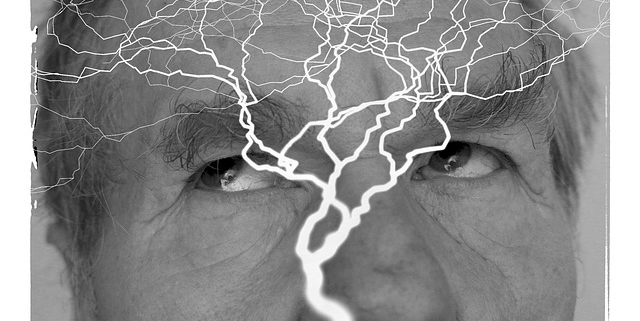Promising Research Brings New Hope in The Treatment of Epilepsy
An estimated 3.4 million people in the United States live with active Epilepsy, with close to 150,000 new cases being recorded every year. Prompt diagnosis and comprehensive care are crucial at the first sign of this condition. Today, a neurologist in Leesburg, Dr. Sarbjot Dulai, will discuss what epilepsy is, what causes it, treatment options, as well as new research being done to help control this condition.
What is Epilepsy?
Epilepsy is a disorder of brain that is often diagnosed after a person has had two or more seizures. According to the Centers for Disease Control and Prevention (CDC) there are many types of seizures and a person with epilepsy can have more than one type of these seizures.
It is not always easy to tell when someone is having a seizure. A person having a seizure may seem confused or look like they are staring at something that isn’t there. Other seizures can cause a person to fall, shake, and become unaware of what is going on around them.
Epilepsy seizures are classified into two groups.
Generalized Seizures affect both sides of the brain.
- Absence Seizures: These used to be called petit mal seizures and can cause rapid blinking or a few seconds staring into space.
- Tonic-Clinic Seizures: Otherwise known as grand mal seizures, can cause a person to cry out, lose consciousness, fall to the ground, and have muscle jerks or spasms. Usually, a person feels tired after a tonic-clinic seizure.
Focal Seizures and are located in just one area of the brain. These seizures can also be called partial seizures.
- Simple Focal Seizures: These affect a small part of the brain. These seizures can cause twitching or a change in sensation—like a strange taste or smell.
- Complex Focal Seizures: Complex Focal Seizures can make a person with epilepsy confused or dazed. The person will be unable to respond to questions or direction for up to a couple of minutes.
- Secondary Generalized Seizures: This type of seizure begins in one part of the brain, but then spreads to both sides of the brain. Basically, the person first has a focal seizure, followed by a generalized seizure.
It is important to be aware that seizures are not the only symptom of epilepsy. Other signs to watch for are as follows:
- Staring at something for a long time
- Momentary confusion
- Loss of consciousness or awareness about something
- Uncontrollable jerking of legs and arms
- Unexplainable fear
- Anxiety
A seizure due to epilepsy can happen anytime, and immediate care should be sought by calling emergency services (911) in the event that:
- The seizure takes longer than 5 minutes
- Consciousness or breathing is not regained after the episode
- A second seizure takes place immediately
- Or the person who had a seizure is pregnant, has diabetes, a high fever, or was injured during the episode
What Causes Epilepsy?
Epilepsy is a disorder in the central nervous system. It occurs when brain activity becomes abnormal and causes bouts of unusual behavior, epileptic seizures, and loss of awareness. Genetics, developmental disorders, brain conditions or trauma, prenatal injury, and infectious diseases can be contributing factors to the development and onset of epilepsy.
How Is Epilepsy Treated?
Epilepsy can be treated by medications to help prevent and control the seizures, with dietary therapy, or with surgery. Some people will need lifelong treatment to control their symptoms and seizures. Others may not need lifelong treatment as the disorder eventually cleared.
The Promise of New Research for Epilepsy
According to researchers at the University of Virginia’s School of Medicine, common seizure preventing drugs do not work for a third of epilepsy patients. New and better treatments for such brain injuries are much needed. One recent discovery comes from UVA’s School of Medicine, which has identified a potential avenue that is inspired by the brain’s natural immune response.
Researchers have found by using high powered imaging, that immune cells called microglia were not just removing damaged material after experimental seizures but appeared to be healing damaged neurons. Looking at the brains of lab mice after they had severe seizures, researchers found that rather than cleaning up debris, the microglia began forming pouches. These pouches did not swallow up damaged material like most immune cells do. Instead, it was discovered they began healing the branches of nerve cells that transmit nerve impulses known as dendrites.
According to UVA’s Brain Institute and the Center for Brain Immunology and Glia (BIG), researchers had only found generic evidence that microglia could be used to improve seizures. However, these new imaging results indicate that microglia may not be simply clearing debris but providing structural support for neuronal integrity.
The National Institutes of Health (NIH) have given grants to further this study of microglia. The funding will allow the UVA research team to study how these immune cells help regulate vascular function, which could be important for diseases such as Alzheimer’s, and their role in brain-hyperactivity disorders such as febrile seizures that can trigger epilepsy. (Reference: https://newsroom.uvahealth.com/2021/07/22/brain-discovery-could-lead-to-new-epilepsy-treatments/)
Yale physicians have also been on the front lines of new research in the treatment of epilepsy. In 2018 the Food and Drug Administration (FDA) approved a deep brain stimulation device (DBS) that sends electrical pulses through the brain to reduce the frequency of seizures. Then in 2020, the FDA approved another deep brain stimulation device, the Percept PC, that facilitates more customized therapy, allows doctors to treat epilepsy, as well as record electrical activity from deep in the brain. (Reference: https://www.yalemedicine.org/news/epilepsy-deep-brain-stimulation)
In 2020, Yale Comprehensive Epilepsy Center became the first epilepsy center in the U.S. to implant the device in a patient with epilepsy. As of early 2021, eight epilepsy patients have been implanted with the Percept PC device at Yale.
DBS devices — similar to how pacemakers use electrical signals to keep the heart beating normally — use electrical pulses to regulate the brain’s electrical activity. The Percept PC records patient’s brain signals. Using the information collected by the Percept PC, neurologist can more precisely adjust the devices programming. Researchers hope that when more data over time has been collected from enough people, that neurologists may have better insight into how to more accurately predict a patient’s risk of seizure. Thus, leading to a significant improvement in quality of life for people with epilepsy (especially treatment-resistant epilepsy).
Schedule an appointment with your neurologist today!
Schedule an appointment with Dulles neurology specialist, Dr. Sarbjot Dulai. He can help with diagnosing and treating epilepsy as well as other neurologic conditions. With his vast experience, he takes the time to assess your medical history to create a personalized treatment for you. Contact Neurology Associates today at (703) 726-6393 to schedule a consultation with Dr. Dulai.










